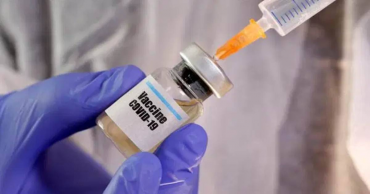doses
Spirulina: Health benefits, doses, uses, and side effects
Spirulina is the biomass of cyanobacteria or blue-green algae. It has three species namely Arthrospira platensis, A. fusiformis, and A. maxima. Arthrospira is cultivated around the world and is used as a dietary supplement or whole food. It is used as a food source in some parts of Mexico and Africa. Both humans and animals can consume Spirulina. Let’s find out the health benefits and side effects of Spirulina.
10 amazing health benefits of spirulina
Rich in many nutrients
Spirulina grows in fresh water and salty water also. It is packed with protein, numerous types of vitamins and minerals, healthy polyunsaturated fats, antioxidants, C-phycocyanin, and beta-carotene.
From 1 tablespoon or 7 g of dried spirulina powder, you will get protein: 4 g, thiamin: 14% of the Daily Value, riboflavin: 20% of the DV, niacin: 6% of the DV, copper: 47% of the DV, iron: 11% of the DV. It also has suitable amounts of magnesium, potassium, and manganese. Moreover, Spirulina is rich in omega-6 and omega-3 fatty acids.
Read More: 14 Top Anti-aging Foods to Look Younger
If you can experience oxidative damage, it can harm your cells and can drive chronic inflammation, which ultimately contributes to cancer and other diseases.
Spirulina is an amazing source of antioxidants. Antioxidant and anti-inflammatory properties of Spirulina can protect against oxidative damage.
The main active component of spirulina is called phycocyanin, which is an antioxidant. It gives spirulina its unique blue-green color. Phycocyanin can fight free radicals and block the production of molecules that promote inflammation, providing impressive antioxidant and anti-inflammatory effects.
Read More: Top Traditional Bangladeshi Foods You Must Try
Fights allergies
Nowadays, many people are suffering from health issues like irritations of allergies that mostly happen due to dust mites, pet dander, pollen, and many more. The most common symptoms of allergies are a stuffy nose, watery eyes, or itchy throat.
Some studies on animals have shown that spirulina helps to stop the release of histamine, which is mainly responsible for symptoms of allergic rhinitis. Studies on Human also show that spirulina consumption improved symptoms like sneezing, nasal congestion, nasal itching, and nasal discharge when compared to the placebo group.
Detoxification arsenic
The problem of chronic arsenic toxicity is present worldwide, especially in India, Bangladesh, and Taiwan, where citizens are consuming a high level of arsenic in their drinking water.
Read More: Beetroot: Nutrition, Health Benefits, Doses, Side Effects
The effects of arsenic toxicity can be ruinous including abdominal pain, severe diarrhea, vomiting, and nausea. When the affected patients took a spirulina extract that is incorporated with zinc, they experienced a 47% decrease in arsenic in their bodies.
Besides, the chlorophyll available in spirulina helps remove toxins from the blood and strengthens the immune system also.
Lowers blood pressure
Phycocyanin is a pigment that is found in the spirulina and can lower blood pressure. According to Japanese researchers, consuming blue-green algae changes endothelial dysfunction in metabolic syndrome and helps lower blood pressure.
Read More: 14 Top Rice Varieties in Bangladesh
Lower cholesterol
Many risk factors are related to an increased risk of heart disease which causes death. Spirulina can lower total cholesterol, and LDL (bad) cholesterol, and help increase HDL (good cholesterol). A study shows that spirulina can notably improve these markers in people with metabolic syndrome and related disorders.
Anti-cancer properties
Although it needs more studies, some proof says that spirulina has anti-cancer properties and it can reduce cancer occurrence and tumor size. Spirulina’s effects on oral cancer have been extremely well studied.
Fights anemia
Anemia is a condition that happens due to the reduction in hemoglobin or red blood cells in your blood. The main causes of anemia include nutrient deficiencies, genetic disorders, and chronic inflammation.
Read More: Best Foods for Hair Growth: What to Eat, Drink and Avoid
Especially, in older adults, anemia may lead to prolonged feelings of weakness and fatigue. A study shows that spirulina supplements can increase the hemoglobin content of red blood cells and improve immune function.
3 years ago
12 crore vaccine doses to be administered by January: Health Minister
Bangladesh will administer at least 12 crore doses of Covid-19 vaccines by next January, said Health and Family Welfare Minister Zahid Maleque on Sunday.
The minister said "There is no shortage of vaccines in the country. There are over one crore vaccines in stock. All the people of the country can be vaccinated as per the instructions of the prime minister."
The minister made this remark while inaugurating DBL Pharmaceuticals at Gazipur on Sunday.
READ: DU to collaborate with AFC Biotech to develop Covid-19 vaccine
Zahid said the government has bought 21 crore doses of vaccine. From there, at least three crore doses of vaccine will arrive this month. Same number of doses are expected to next month.
At least seven crore doses of the vaccine have already been administered. If this continues, it will be possible to administer at least 12 crore doses of vaccine by January next year. "If that is done, it will be possible to reduce the death rate from Covid-19 to zero," said the minister.
The minister also claimed there has been no shortage of medicines throughout the Covid-19 pandemic across the country. These medicines were also sufficiently available at the village level.
Bangladesh also exports medicines after meeting 98 per cent of the domestic demand, the minister added.
"Pharmaceuticals are going to be one of the biggest sources of foreign exchange in the country, after the RMG sector. However, we are going to form a new drug policy to ensure that there are no adulterated drugs in the country," said the minister.
He further said no one will be able to increase the drug price in the country's market unnecessarily because of the new policy.
READ: No shortage of vaccines in Bangladesh: FM
The minister also visited different parts of the drug company on the inaugural event accompanied by the member of the Parliament Dr Habib E Millat, Directorate General of Drug Administration (DGDA) Maj Gen Mahbubur Rahman and DBL Pharmaceuticals Chairman Abdul Wahed.
4 years ago
India widens gap between two doses of Covishield to 12-16 weeks
India on Thursday extended the gap between the first and second doses of the Serum Institute-produced Oxford-AstraZeneca vaccine Covishield to 12-16 weeks from the existing six-eight weeks, amid a huge surge in corona cases and an acute shortage of jabs.
Covishield is also being used in Bangladesh's mega inoculation drives. Though Bangladesh has inked a deal with the Serum Institute to acquire 30 million doses of Covishield, a recent surge in Covid cases in India has made the delivery of the remaining doses uncertain.
"Based on available real-life evidence, particularly from the United Kingdom, the Covid-19 Working Group has agreed to increase the dosing interval between two doses of Covishield to 12-16 weeks," the Indian government said in a statement.
Prime Minister Narendra Modi rolled out the world's largest Covid vaccination drive in India on January 16. Covishield and local pharmaceutical company Bharat Biotech's Covaxin are currently being given to the citizens of India.
Also read: India to begin Covaxin vaccine trials for children
The Indian government has, however, not announced any changes in dosage intervals for Covaxin, which remains at four to six weeks. "No change in intervals for Covaxin was recommended," the statement said.
Serum's CEO Adar Poonawalla has welcomed the government's announcement. "This is beneficial both from efficacy and immunogenicity standpoints... good scientific decision to increase the gap," he told a local news channel.
Also read: India returnee tests Covid-19 positive in N’ganj, house put under lockdown
Poonawalla also cited a study in international medical journal The Lancet, linking widening of Covishield doses to increased efficacy.
India's main opposition Congress party has, however, expressed apprehensions over the government's latest move, given the fact that there has been a change in Covishield dosage intervals for the second time in three months.
"First, it was four weeks for the second dose, then six-eight weeks and now we are told 12-16 weeks. Is this because there are not enough stocks of vaccines or because professional scientific advice says so?" senior Congress leader Jairam Ramesh tweeted:
"Can we expect some transparency from the Modi government?" he added.
India is not only reeling under the twin burdens of a huge surge in Covid-19 cases and an acute shortage of jabs, but also facing a deadly crunch of medical oxygen. In the past one month, at least 120 patients have died at different hospitals in India due to oxygen shortage.
With Prime Minister Modi's government failing miserably to stem the oxygen crisis, the Supreme Court last week set up a 12-member National Task Force to assess the availability of the life-saving gas across the country and help resolve the crisis at the earliest.
Also read: Stranded Bangladeshis in India: 3 more land ports to be reopened
"The rationale for constituting a Task Force at a national level is to facilitate public health response to the pandemic based on scientific and specialised domain knowledge. We expect leading experts in the country shall associate with the Task Force," judges had said.
4 years ago





